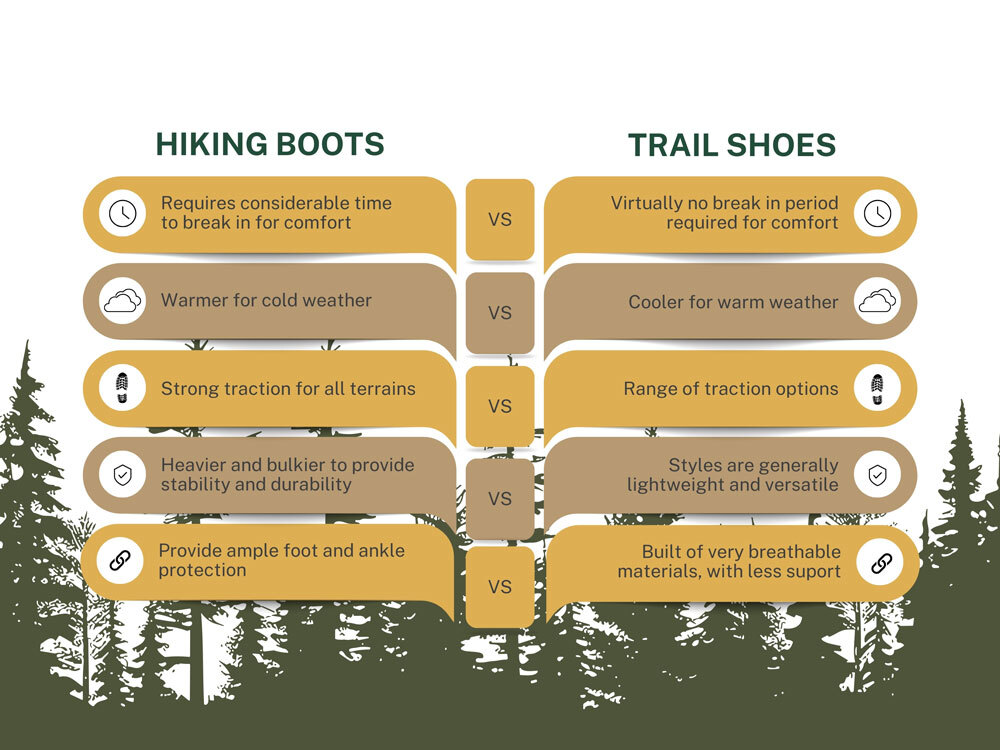Trail Shoe vs. Hiking Boot? Your Trail Footwear Guide.
By Dusty

When hitting the trails, the right footwear can make or break your adventure. Whether you are hiking on a rough mountain or walking on a smooth path, picking the right shoe is important. Each has its own advantages, depending on your hiking style, terrain, and personal preference.
In this guide, we will explain the main differences between hiking boots and trail shoes. We will look at the pros and cons of each style helping you decide which option is best for your outdoor adventures. Whether you are an experienced hiker or a beginner in nature, this guide will help you feel confident with your footwear on the trail.
Key Footwear Considerations
Are you new to hiking? Keeping your balance on uneven terrain while carrying a pack takes practice. Hiking boots, with their wide and sturdy soles, provide a solid foundation for every step. This helps you stay stable on the trail which is recommended for newer hikers. Trail shoes can provide a better feel of the ground underfoot, which means you are better able to adapt to variations in terrain which is recommended for more confident hikers.
Consider the terrain. Rough, rocky trails call for durable, supportive boots that can handle wear and tear while protecting your feet from sharp rocks and roots. On the other hand, if you're strolling through a well-maintained forest path, lightweight trail shoes will do just fine. If you're venturing into cold, wet conditions, a waterproof hiking boot may be the best choice—but waterproof trail-running shoes are also an option.
Know your body’s needs. If you typically need extra support in your footwear or plan to carry a heavy pack, a sturdy hiking boot will offer the stability you need. But if you have no issues with leg or joint strength and aren't hauling significant weight, trail runners can be a great alternative.
Think about your pace. Are you planning a slow, steady trek or aiming to cover ground quickly? Lightweight trail runners make it easier to maintain a fast pace, which is why some long-distance hikers prefer them—they need footwear that can keep up with high-mileage days without slowing them down.
Do you need waterproof or breathable? Some hiking boots and trail shoes will include a waterproof membrane. While your feet will stay dry in most conditions it will make your shoe less breathable which can cause sweat to collect in the shoes. Waterproof shoes are recommended for use in colder, snowy conditions while breathable shoes are recommended for use in warmer, drier conditions.
Note: Waterproof shoes often need continuous maintenance to keep them waterproof.
We hope these tips will help guide you to determine if a trail shoe or hiking boot is best for your next hiking adventure.
Still wondering what fits your lifestyle the best? Check out this quick comparison to help you decide!
Once you have determined the right style for you, shop our variety of hiking footwear styles in-store or online at Eagle Eye Outfitters.
Shop our Favorite Hiking Boots

